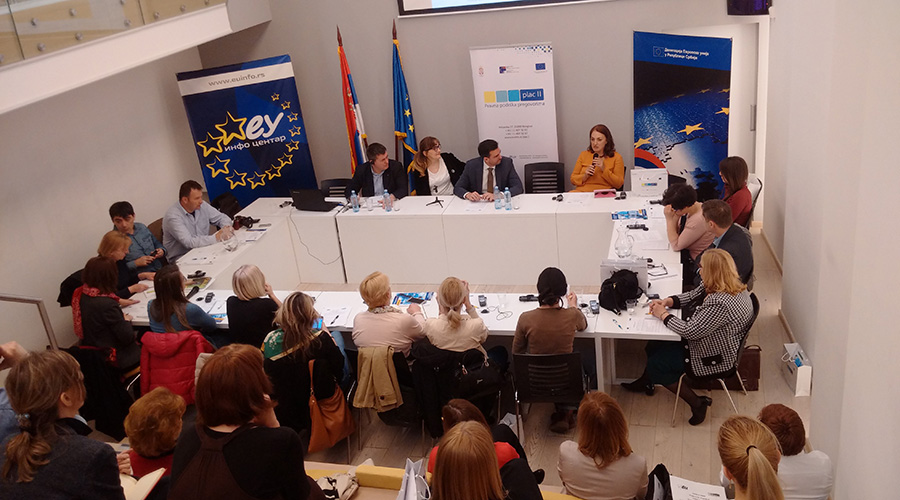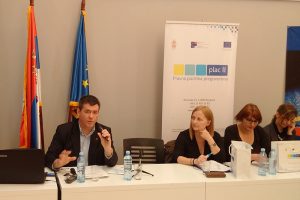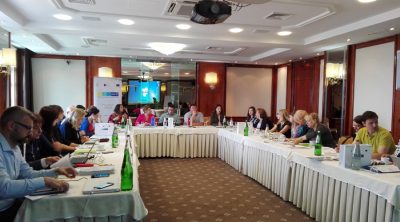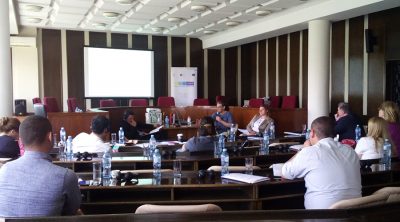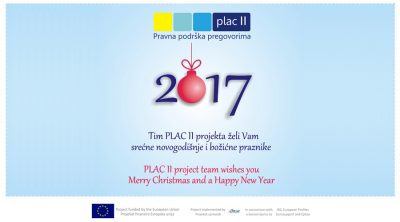The first in a series of briefings for media “On the path to the EU – negotiation chapters” was held on 5th April at the EU Info Center. Briefing on Chapter 27 – Environment, organised by the EU Info Centre and the project Legal support to negotiations (PLAC II), was attended by 21 journalists who specialise in environmental topics.
Giovanni Gordiani, expert in this area spoke about EU environmental policy and directives. European policy in this area was created as a result of pollution, public pressure, as well as conclusions on the international level. By the 1970s, environmental regulations were rare, and the Scandinavian countries were the first to pass them. Initially, the regulations were designed to “put out fire”, and over time the focus has turned to prevention and planning.
“Common environmental problems require common solutions,” he said, so 80% of the EU legislation on environment has been issued at the Union level, and one-fifth on the national level. The reason for this lies in the nature of this area, which is cross-border – from the management of water basins to pollution. In addition, the EU is a common market, which implies the common regulations.
Sometimes the objectives of EU environmental policy may seem too ambitious, he said, and as an example noted that the directive from 2000 set the following goal: to achieve good status for all waters by 2015, including biological, chemical and morphological characteristics, i.e. pollution, biodiversity and water quantity. Although the target was not achieved, progress has been made, so in 2000, approximately 30% had good water status, 43% in 2009 and in 2015 53%.
When we talk about environment regulation, it is often said that it is expensive, but Gordiani believes that the benefits of environmental regulations compensate the costs, because it is about protecting the environment, health and consumers.
Journalists present at the briefing, were welcomed the Head of Operations at the EU Delegation to Serbia, Steffen Hudolin and Assistant Director of the Office for European Integration, Ivana Djuric. They noted that it is important that the public is informed about the content of the negotiation chapters and the requirements, and not only about the pace of the opening chapters.
Photo: Miloš Ćirković & Project PLAC II
